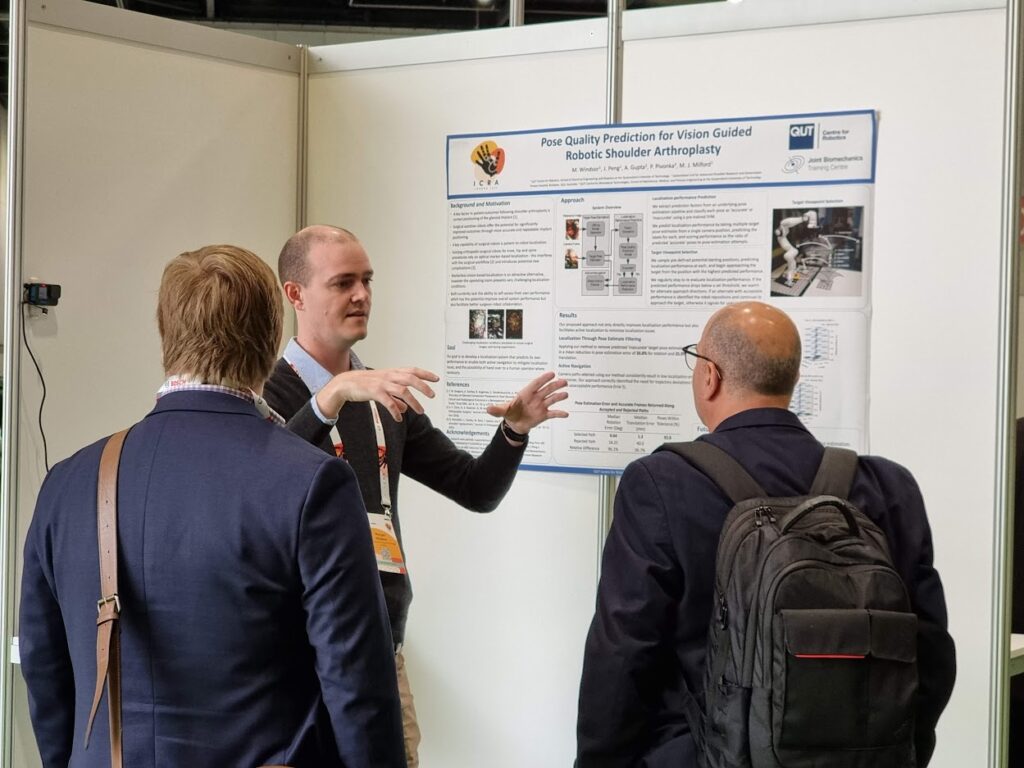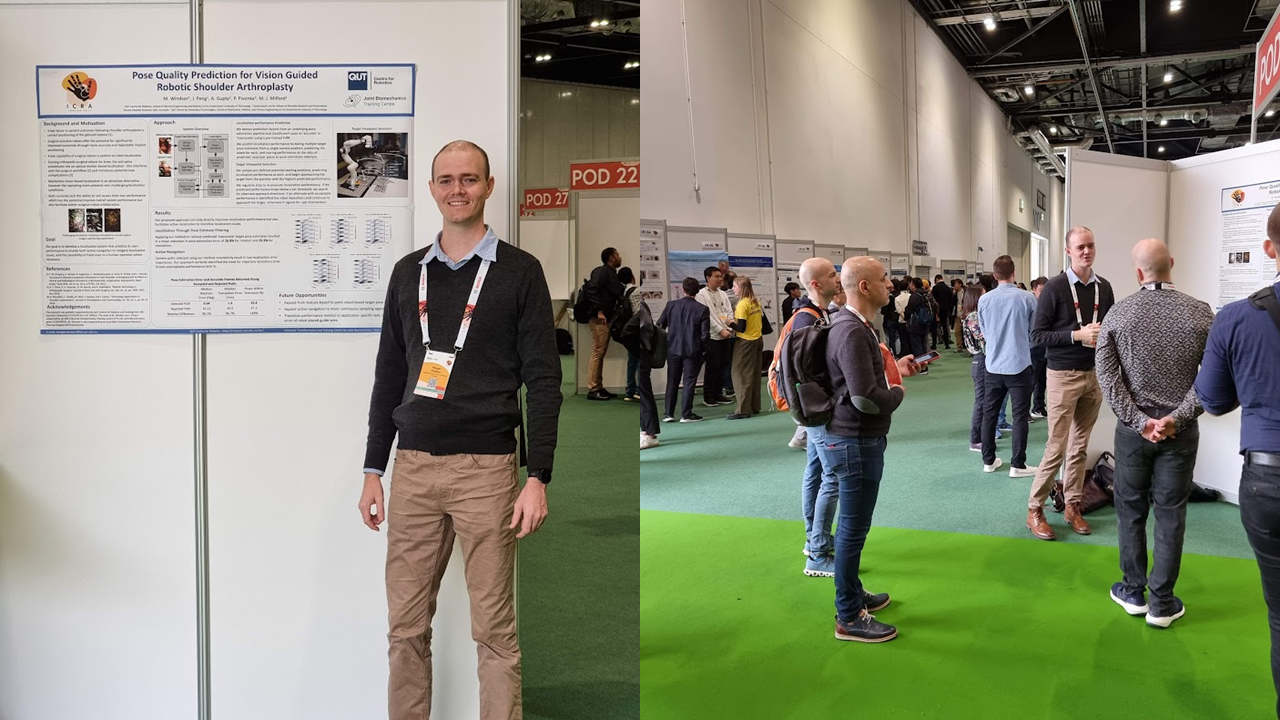
Centre PhD student, Mr. Morgan Windsor, is making waves in the world of medical robotics as he proudly presented his poster titled ‘Post Quality Prediction for Vision Guided Robotic Shoulder Arthroplasty’ at the International Conference on Robotics and Automation (ICRA) in London from May 29 to June 2. With over 4,000 attendees, Windsor is set to expand his connections and engage with the very best and emerging leaders in the field of medical robotics.
Windsor’s work, the first paper to emerge from program 2 at the centre, titled “Forward Prediction of Target Localisation Failure Through Pose Estimation Artefact Modelling,” is a groundbreaking contribution to the realm of orthopaedic surgical robots. These robots hold the promise of significantly improving patient outcomes by ensuring more accurate and repeatable procedures, assisting surgeons in translating patient-specific plans into precise execution.
A critical challenge in this field revolves around ensuring trustworthy localisation—identifying the precise location of target bones relative to the robot and determining the accuracy of the estimate for the given task. Previous methods have focused on identifying underperformance or failure as it occurs or after it occurs. Windsor’s work, however, takes a proactive approach by proposing to predict where localisation failures are likely to occur. This enables a robot to anticipate and avoid potential failures, a paradigm shift in the field.
The contributors to this groundbreaking research include Morgan Windsor, Alejandro Fontan, Peter Pivonka, and a special acknowledgment to Prof. Michael Milford, Windsor’s PA, for his invaluable support throughout the project.
The research specifically addresses the challenges faced in shoulder arthroplasty, where the current “gold standard” relies on optical markers to track bones and guide robots. However, this approach interferes with the surgical workflow, and attaching markers to bones introduces potential complications. Windsor’s markerless vision-based system offers an attractive alternative, but implementing it is challenging due to the difficulty of the problem and variations in surgical conditions.
The significance of Windsor’s work lies in localisation system self-assessment, a critical aspect of transitioning away from marker-based technology. By developing the ability of vision-based guidance systems to perform self-assessment, the research aims to facilitate the move towards markerless systems that work in various surgical conditions. Localisation self-assessment provides robots with the capability to actively maintain the required level of performance and recognize situations where safe handover to a human operator is necessary.
As Mr. Morgan Windsor presents his research at ICRA, we commend his dedication and look forward to the positive impact his work will have on advancing the field of medical robotics and, ultimately, improving patient outcomes.

